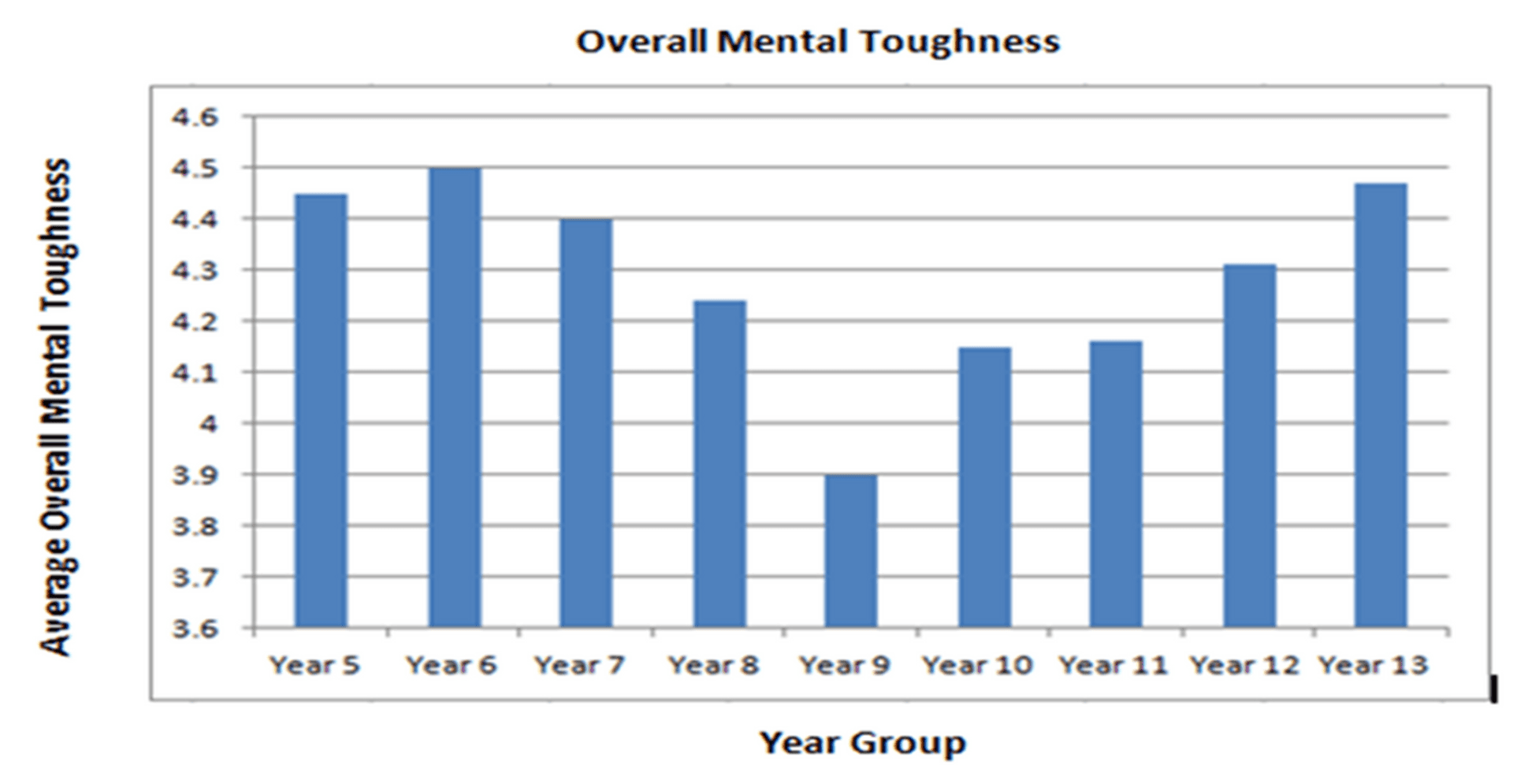Mental Toughness in Education
EW
Mental Toughness and the School Journey
Transitions in education are often pivotal moments for young people. Research from the UK, UAE, and the Netherlands consistently shows that average levels of mental toughness drop when students move from junior school to high school. This is a critical stage where children face new environments, expectations, and social pressures.
A large UK study across 58 schools revealed a striking pattern: mental toughness levels continued to decline through Year 8 before turning upwards again, forming what researchers call a “U‑shaped curve.” This suggests that while students eventually adapt, the early years of secondary school can be particularly challenging.

Interestingly, about 10 of the 58 schools did not show the drop or the U‑shaped curve. This indicates that with the right environment and support, the decline in mental toughness is manageable and not inevitable.
Why Mental Toughness Matters
Mental Toughness is a personality trait that describes how individuals respond to stress, challenge, and opportunity. It is strongly linked to:
Wellbeing — higher resilience, lower anxiety
Attainment — better academic performance and persistence
This isn’t just theory. The concept is backed by over 1,000 research papers, making it one of the most evidence‑based frameworks in psychology and education.
Parenting and Mental Toughness
The applications of Mental Toughness extend beyond the classroom. Parenting research and practice show that building resilience at home can significantly influence how children handle transitions and challenges in school.
Parents who understand the Mental Toughness framework can:
Encourage confidence and self‑belief in everyday situations
Support children in developing coping strategies for setbacks
Create a safe space for dialogue, helping young people process stress and uncertainty
Model resilience themselves, showing children how to respond positively to challenges
This work highlights that Mental Toughness is not just an educational tool — it is a family resource that strengthens wellbeing and performance across contexts.
Implications for Educators and Parents
Schools can design interventions that build confidence, commitment, and coping strategies.
Parents can support transitions by encouraging open dialogue and resilience practices.
Coaches and practitioners can use tools like MTQPlus to assess and develop mental toughness in young people.
Reach out to [email protected] if you'd like to explore further.
